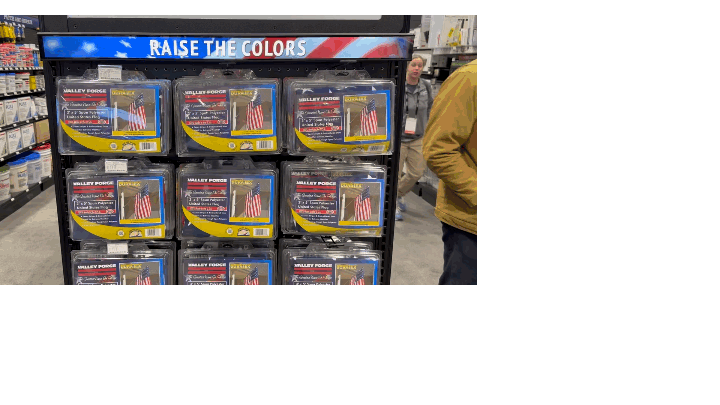Home Depot, Lowe's Increase Pressure on Vendors to Improve Eco Measures
- Craig Webb

- Aug 9, 2023
- 3 min read
Updated: Aug 10, 2023
Newly updated environmental goals from The Home Depot and Lowe's are gradually raising demands on their suppliers to help reduce greenhouse gas emissions, recycle more, eliminate harmful chemicals, and slash water and energy consumption in suppliers' manufacture and consumers' use of the products.
The objectives laid out in the big boxes' corporate responsibility reports may seem out of synch in an America whose citizens and investors have mixed opinions about going green. But they reflect ideas popular elsewhere in the world--ideas that vendors with global ambitions will have to cope with regardless of U.S. attitudes about sustainability. And, if these vendors want to sell in the U.S. to The Home Depot and Lowe's, they'll need to pay attention to the big boxes' requests.
Both Home Depot's 2023 ESG Report and Lowe's Corporate Responsibility Report categorize their goals for reducing greenhouse gas emissions based on what are known as Scope 1, 2, and 3 emissions. Scope 1 are so-called "direct" emissions by the company, such as by running machinery or vehicles. Switching to electric or hydrogen-powered forklifts cuts Scope 1 emissions. Scope 2 emissions refer to energy a company buys. Transitioning to solar or hydro power from power produced by burning fossil fuels reduces Scope 2.
Both of the big boxes have been working on these scopes for years. Lowe's wants to reduce its 2021 level of Scope 1 and 2 emissions by 40% by 2030. It's down about 5% so far. The Home Depot, which uses a fiscal 2020 base year, wants to cut greenhouse gas emissions by 42% by 2030. It says it reduced Scope 1 and 2 emissions by 5.6% in FY2022 from 2021.
Now comes the much harder task: Reducing Scope 3 emissions. These are produced by suppliers in manufacturing the product as well as by customers in using that product. Often, more than 70% of a company's carbon footprint involves Scope 3, the consulting firm Deloitte says. Take an electric drill: The vendor's carbon footprint stretches all the way from the energy expended to extract raw materials in manufacturing the drill to every amp of electricity used in the drill's life. Not only is such a footprint hard to measure, for retailers it's hard to get such information today from vendors.
EDRA/GHIN, the global trade body for home improvement retailers--particularly those based in Europe--began attacking this problem in June. with their creation of a task force to improve reporting on Scope 3 carbon footprints. This task force, which includes The Home Depot as a founding member, also will share best practices on ways that building material dealers can reduce their involvement in Scope 3 emissions.
"In my opinion, sustainability and scope 3 are a must," Thierry Garnier, president of EDRA/GHIN and CEO of Britain's 1,900-store Kingfisher PLC, said in an interview* with the German-language publication DIY. "We have to do it: not because of the regulations, but because the future of our planet is at stake and the future we will leave to our children. I think we have no other choice, we have to work on it as soon as possible."
The Home Depot has committed to reduce by 2030 the volume of Scope 3 "Use of Sold Products" emissions by 25% from 2020 levels. Lowe's, by 2030, is aiming for a 22.5% drop from 2021 levels.
Getting there will require suppliers to take action. For instance, The Home Depot declared in this year's report a new target: "Motivate top-tier strategic suppliers to have a business-relevant publicly stated sustainability goal by 2025." Lowe's has pretty much the same goal and target year, and says 85% of its "strategic suppliers" already have such goals in place.
After that, dealers know that cutting Scope 3 will require support from citizens and their governments. This is likely to be less of a problem in, say, Germany, where The Greens are the country's fourth-biggest party. In the United States, just-published results of a poll by The Washington Post and University of Maryland found contradictory opinions: 57% percent disapproved of how President Biden was handling climate change. On the other hand, 67% to 77% were unaware of tax rebates and various other green measures enacted in last year's Inflation Reduction Act. Seventy percent agreed that, all else equal, they'd like the next president to be someone who favor government action to address climate change.
Even if Scope 3 didn't exist, The Home Depot and Lowe's report several other initiatives, such as The Home Depot's work to exclude PFAS chemicals from products they sell and require that packaging will be compostable, recyclable, or made of recycled content. Both also noted they sell energy- and water-saving products.
*--This interview was reported originally in German. Google Translate was used for the quotes in English used here.








Comments